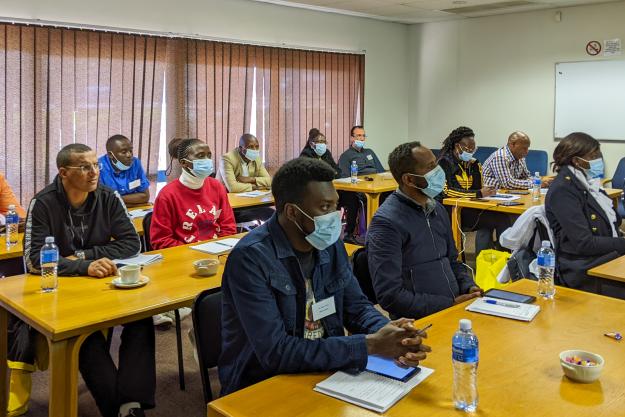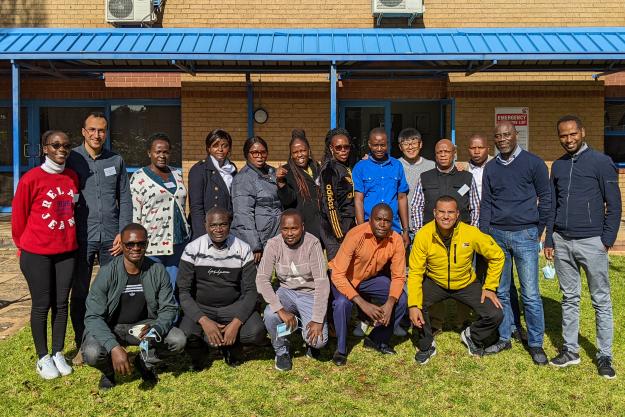The Organisation for the Prohibition of Chemical Weapons (OPCW), in partnership with the Protechnik laboratories of South Africa, organised the 12th edition of the Analytical Chemistry Course from 23 May - 3 June 2022 in Pretoria, South Africa. The two-week long course is part of the laboratory capability enhancement programme aimed at developing analytical chemistry skills relevant to the implementation of the Chemical Weapons Convention (CWC). It is part of OPCW's Programme to Strengthen Cooperation with Africa.
In his opening remarks, Mr. Matome Mookodi, Director of the South African National Authority, stressed the importance of the course for the implementation of the Chemical Weapons Convention in the African region. The OPCW Programme Officer, Taeeon Kim, coordinating the course stated: "The course showcases the cooperation between the African Member States."
Participants learned about the Chemical Weapons Convention and the use of analytical methods to detect Convention-related substances, using Gas Chromatography and Mass Spectrometry (GC-MS). GC-MS is an instrumental technique to identify different chemical substances that can be used during the OPCW inspection and verification processes. Throughout the two weeks, the participants learned the theories of the GC-MS and participated in practical exercises on the use of the GC-MS equipment in the analysis of chemical substances in the laboratory.

At the end of the course, participants demonstrated the knowledge and skills gained in using the GC-MS methods by successfully passing the exam given at the end of the training.
"It was a very useful course, and I am looking forward to sharing the knowledge I learnt from the course with my colleagues at home and to prepare for the OPCW Proficiency Test", said one of the participants from Sierra Leone in the closing ceremony.
The in-person training was attended by 22 participants from 16 African Member States: Algeria, Benin, Botswana, Burundi, Cameroon, Cóte d'lvoire, Ethiopia, Kenya, Lesotho, Malawi, Sierra Leone, South Africa, Tanzania, Tunisia, Uganda, and Zimbabwe.

Background
OPCW supports its Member States in the peaceful use of chemistry as mandated under the Article XI of the Convention (economic and technological development). Capacity building under Article XI focuses on integrated chemicals management, laboratory capabilities enhancement, and promotion of chemical knowledge.
OPCW's Programme to Strengthen Cooperation with Africa on the Chemical Weapons Convention - more commonly known as the Africa Programme - focuses on the needs of African Member States, including the promotion of peaceful and authorised uses of chemistry for inclusive and sustainable development and for a safe and secure Africa.
As the implementing body for the Chemical Weapons Convention, the OPCW, with its 193 Member States, oversees the global endeavour to permanently eliminate chemical weapons. Since the Convention's entry into force in 1997, it is the most successful disarmament treaty eliminating an entire class of weapons of mass destruction.
Over 99% of all declared chemical weapon stockpiles have been destroyed under OPCW verification. For its extensive efforts in eliminating chemical weapons, the OPCW received the 2013 Nobel Peace Prize.






